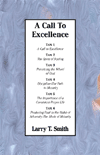















 HOME HOME BIBLE
STUDIES
BIBLE
STUDIES ONLINE
MEDIA
ONLINE
MEDIA BOOKSTORE
BOOKSTORE MISSION
MISSION CONTACT
US CONTACT
US LINKS
LINKS |
PROPER HERMENEUTICS AND THE FOLLY OF THE
"TWO CONVERSATION" ARGUMENT - Part 4
Studying Grammar and the Contextual Flow of The Olivet Discourse to Disprove the Doctrine of Dispensationalism Michael F. Blume © 2010 Michael F. Blume All
Rights Reserved 
Let
us summarize so far the facts that refute the ridiculous claim by
futurists that Matt 24, Mark 13 and Luke 21 present two totally
different conversations.
But alas, recently a dispensationalist whom I know has violated his own argument that formerly said the statement about "Blessed is he that cometh in the name of the Lord" was not the topic of his second discussion on the mount of Olives, but rather the first discussion at the temple grounds. He formerly claimed that the long distance from the temple to the Mount of Olives brought a pause in the overall context, and the questions the disciples asked on the Mount of Olives are recorded in Mark 13 and Matt 24, but the discussion at the temple grounds is only recorded in Luke 21. Anything said at the temple grounds was what was asked about in Luke 21's series of questions. And although the same series of questions are found in Mark 13, he declared those questions were not from the same conversation, and did not refer to anything said at the temple grounds. Because Luke 21 did not say they asked those questions on the Mount of Olives, he contends this is evidence that they were not asked there. But he then argued that Luke 21:24 ends the conversation at the temple grounds and begins the second conversation in verse 25. But he said only the last half of the second conversation is recounted in Luke. Meanwhile, if you look at the whole record in Luke (where futurists claim are two conversations), the whole record matches the overall single conversation related in Mark and Matthew! BACK | NEXT RDTW
|
|
© Copyright 2010 Rightly Dividing the Word - All Rights Reserved Please assume that all materials on this website are copyrighted by Rightly Dividing the Word. For permission and details see our terms and conditions. For problems with this website, please contact webmaster1@rightlydividingtheword.com. |






